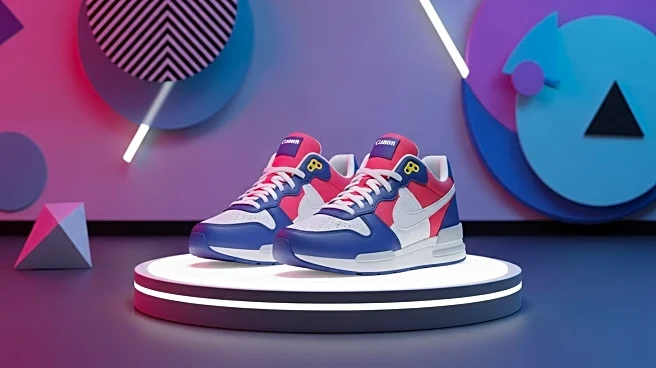What is the story about?
What's Happening?
As the back-to-school season kicks off in the United States, Nike is experiencing a significant decline in popularity among school-aged children and teenagers. According to a survey conducted by investment bank Stifel, Nike's market share among sneaker retailers catering to this demographic has dropped from 88 percent two years ago to 38 percent this year. Brands like New Balance and Adidas have gained traction, while others such as On and Hoka are also capturing market share. This shift indicates a change in consumer preferences among Gen Alpha, who are increasingly opting for alternatives to Nike. In the clothing sector, American Eagle and Hollister are competing fiercely, with Hollister reporting a 19 percent increase in sales during the second quarter. American Eagle has also gained attention through collaborations with celebrities like Sydney Sweeney and Travis Kelce.
Why It's Important?
The decline in Nike's dominance among American teens is significant for the sneaker industry, as it suggests a shift in brand loyalty and consumer preferences. This change could impact Nike's sales and market strategy, prompting the company to reassess its approach to engaging younger consumers. The rise of competitors like New Balance and Adidas highlights the competitive nature of the market and the need for brands to innovate and adapt to changing trends. For the clothing sector, the rivalry between American Eagle and Hollister underscores the importance of strategic marketing and collaborations to capture consumer interest. These developments could influence retail strategies and brand positioning in the U.S. market.
What's Next?
Nike may need to explore new marketing strategies and product innovations to regain its market share among American teens. The company could focus on collaborations, influencer partnerships, or product diversification to appeal to Gen Alpha. Meanwhile, American Eagle and Hollister are likely to continue their competitive efforts, potentially leading to more aggressive marketing campaigns and collaborations. The broader retail industry may see shifts in brand strategies as companies aim to capture the attention of younger consumers and adapt to evolving preferences.
Beyond the Headlines
The changing preferences of Gen Alpha could have long-term implications for brand loyalty and consumer behavior. As younger consumers become more influential in the market, brands may need to prioritize sustainability, inclusivity, and digital engagement to resonate with this demographic. The decline in Nike's popularity could also prompt discussions about the cultural and social factors influencing consumer choices, such as the impact of social media and celebrity endorsements.














